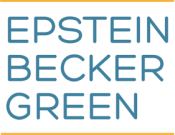The UK’s Competition and Markets Authority (the “CMA”) imposed a £84.2 million (€99.7 million) fine on Pfizer yesterday. In addition, the CMA also fined distributor Flynn Pharma £5.2 million (€6.1 million). The CMA found that Pfizer and Flynn Pharma abused their dominant positions by charging excessive and unfair prices for phenytoin sodium capsules, drugs used to treat epilepsy, in the UK. In addition to the fines, the CMA ordered both entities to reduce their respective prices within timeframes of between 30 working days and 4 months.
In September 2012, Pfizer sold the UK distribution rights for the phenytoin sodium capsules (sold until then under the brand name Epanutin) to Flynn Pharma. Flynn Pharma subsequently de-branded the drug, effectively taking it outside the price regulatory regime. Pfizer continued to manufacture the drugs. The CMA found that, after September 2012, Pfizer supplied the capsules to Flynn Pharma at wholesale prices that were between 780% and 1,600% higher than its previous prices to wholesalers and pharmacies. It also found that Flynn Pharma’s prices to wholesalers and pharmacies were between 2,300% and 2,600% higher than the prices previously paid to Pfizer. Flynn Pharma’s prices also significantly exceeded the prices charged by Pfizer (after September 2012) for the same products in other European countries.
In its analysis, the CMA found that each of Pfizer and Flynn Pharma held a dominant position, the former on the market for the manufacture of phenytoin sodium capsules, and the latter on the market for supply. In assessing whether the prices charged by Pfizer and Flynn Pharma were excessive and unfair, the CMA considered the margin that a generic supplier could have made. The CMA also found that there was no justification for the price increases, since the capsules were a very old drug “for which there has been no recent innovation or significant investment”.
As a result of the price increases, the UK NHS’s annual expenditure on the drugs increased from approximately £2 million in 2012 to approximately £50 million in 2013. Phenytoin sodium capsules are an important drug to prevent and control seizures for an estimated 48,000 epilepsy patients in the UK. Due to the risk of serious health consequences, epilepsy patients who are taking phenytoin sodium capsules should not be switched to other products. The CMA found that, as a result, the NHS had no alternative but to pay the increased prices.
Pfizer and Flynn Pharma have both indicated that they intend to appeal the CMA’s decision. Both companies have stressed that there are other alternative epilepsy drugs available in the UK, and that the prices of the phenytoin sodium capsules were below those of many of those other drugs.
The CMA’s decision follows the Italian Autorità Garante della Concorrenza e del Mercato (“AGCM”)’s decision in October fining Aspen over €5 million for excessive pricing of its anti-cancer drugs Alkeran (melphalan), Leukeran (chlorambucil), Purinethol (mercaptopurine) and Tioguanine (thioguanine). By adopting an aggressive negotiating strategy with Italy’s Agenzia Italiana del Farmaco, Aspen was able to achieve price increases of between 300% and 1,500%. The AGCM applied a two-phase test in determining that the prices were excessive:
-
whether there was an excessive discrepancy between the manufacturing costs of, and the prices charged by Aspen for, the products, concluding that this was the case; and
-
whether the prices applied by Aspen were excessive and unfair, taking into account a range of other factors, including the change in the prices over time, the lack of economic justification for the increases, the absence of “extra economic” benefits for patients, the nature of the drugs, and the damage (as a result of the increased cost) to the National Health Service.
Once the CMA’s decision is published we will be able to identify the similarities and differences between the approaches taken by the CMA and the AGCM.
Excessive pricing has also recently begun to attract attention at the European level, after many years of attracting little focus. In late November, Commissioner Vestager considered the circumstances in which the Commission might intervene to address allegedly excessive prices. After referring to the Commission’s on-going investigation into Gazprom’s alleged excessive gas prices and the potential for exploitation by standard-essential patent holders, the Commissioner noted that, in certain cases it may be necessary for competition rules to be applied to excessive prices in the pharmaceutical sector. The Commissioner did, however, stress that any such action must not discourage innovation. According to PaRR, later that week, Director Paul Csiszár (Directorate E, which handles the pharmaceutical sector) noted that in particular in cases where there are patents that do not reflect material underlying innovation, it may be necessary to use competition law to address excessive pricing of medicines.




 />i
/>i


